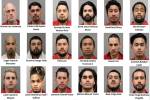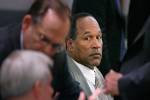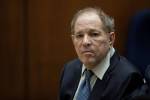Panel OKs domestic partner benefits
CARSON CITY -- A panel that oversees the state employee health insurance plan voted Thursday to extend benefits to domestic partners, including those of the same sex, and their children.
The Public Employees' Benefits Program board also voted to recommend to Gov. Jim Gibbons and the Legislature that the state provide funding to extend a state-paid insurance subsidy to domestic partners and their children. Extending the subsidy would cost an estimated $3 million a year.
A subsidy is provided by the state now to employees to cover their spouses and children.
The expansion of the health care plan to cover domestic partners is not expected to take effect until the 2009-10 fiscal year.
Leslie Johnstone, executive officer of the program, said officials will need several months to draft regulations for the new policy.
The rules for the policy, referred to as providing health benefits to reciprocal beneficiaries, must win approval from the Legislative Commission before they can take effect.
It is unlikely the work could be done in time for the 2008-09 fiscal year, Johnstone said.
And because the Legislature would have to approve the cost of expanding the health insurance subsidy to domestic partners, it could not become available until the 2009-10 year, Johnstone said.
The decisions made by the board filled in the details of a previous vote. The board had voted unanimously in December to move forward with covering domestic partners.
But Johnstone said the December vote had been the subject of different interpretations by board members and others.
The changes approved Thursday were intended to make clear to everyone what the new policy will be, she said. Johnstone and her staff now will draft rules implementing the board decisions.
Reaction was mixed.
ACLU of Nevada Executive Director Gary Peck applauded the board for its decision.
The board "had the vision and courage to do the right thing by extending these benefits to people who clearly deserve them," he said. "This is another step on the long road to equality for all of Nevada's residents and workers."
He added that the fight over such benefits isn't over, but he expects that "the Legislature ... will do the right thing."
But Richard Ziser, the chairman of Nevada Concerned Citizens, said the state should not be spending money on such benefits.
"It seems a little ironic, when the governor and everyone is having to cut budgets, that they want to add expenses," he said.
Ziser, who spoke to the board in opposition of the idea last year and who five years ago backed a successful effort to amend the state constitution to ban gay marriage, said adding the benefits also is unnecessary.
"It's such a small number of public employees who could take advantage of it," he said. "You don't change public policy for that small of a number."
Ziser said offering such benefits would require a new "definition of a spouse" in Nevada law, and the board, as a non-elected body, doesn't have the authority to do so.
But Peck said the idea that offering the benefits has anything to do with Nevada's "Protection of Marriage" act is "flat-out wrong."
"It has nothing to do with the sanctity of marriage," Peck said. "It's about benefits and equality."
The original request to include domestic partners in the state health plan came from the Nevada System of Higher Education. University and college presidents told the board in June that extending benefits to partners is essential to their ability to recruit top professors and administrators.
A petition filed by the campus presidents last year said that between 1999 and 2006, the number of colleges and universities offering health benefits to non-married adults in such relationships increased from 122 to 290.
University of Nevada, Las Vegas President David Ashley said Thursday the system's two universities, five colleges and the Desert Research Institute would be more competitive with the extended benefits.
"As major research universities, both UNR and UNLV are competing with the universities that have this very same benefit," Ashley said.
The vote by the health plan board to cover both same-sex and opposite-sex domestic partners was not unanimous. The vote was 5-3, with some suggestion that the policy be directed solely at same-sex partners.
Board member Julia Teska argued that the policy should cover all domestic partners.
"I don't think we should even deal with the issue of whether people are same sex or opposite sex," she said. "If we are going to offer domestic partnership coverage, we should offer domestic partnership coverage and not specify, get into, what type of couple they are."
Vice Chairwoman Jacque Ewing-Taylor said that the issue in one of equity and that all domestic partners should be covered.
The panel acknowledged the cost factor involved and that it comes at a time of cutbacks in the state budget.
Covering all domestic partners is more costly. An estimate has about 1 percent of the health plan households would be affected with expanding the benefit to same-sex partners only. An estimated 2.7 percent of households will be affected by the board's vote to cover everyone.
Some requirements were approved for the expanded benefit, such as an affidavit that would include a declaration that partners are in a committed relationship. The board also voted against providing health care coverage to partners if they are employed and can get health insurance from their own employers.
Review-Journal writers Lynnette Curtis and Lawrence Mower contributed to this report.























